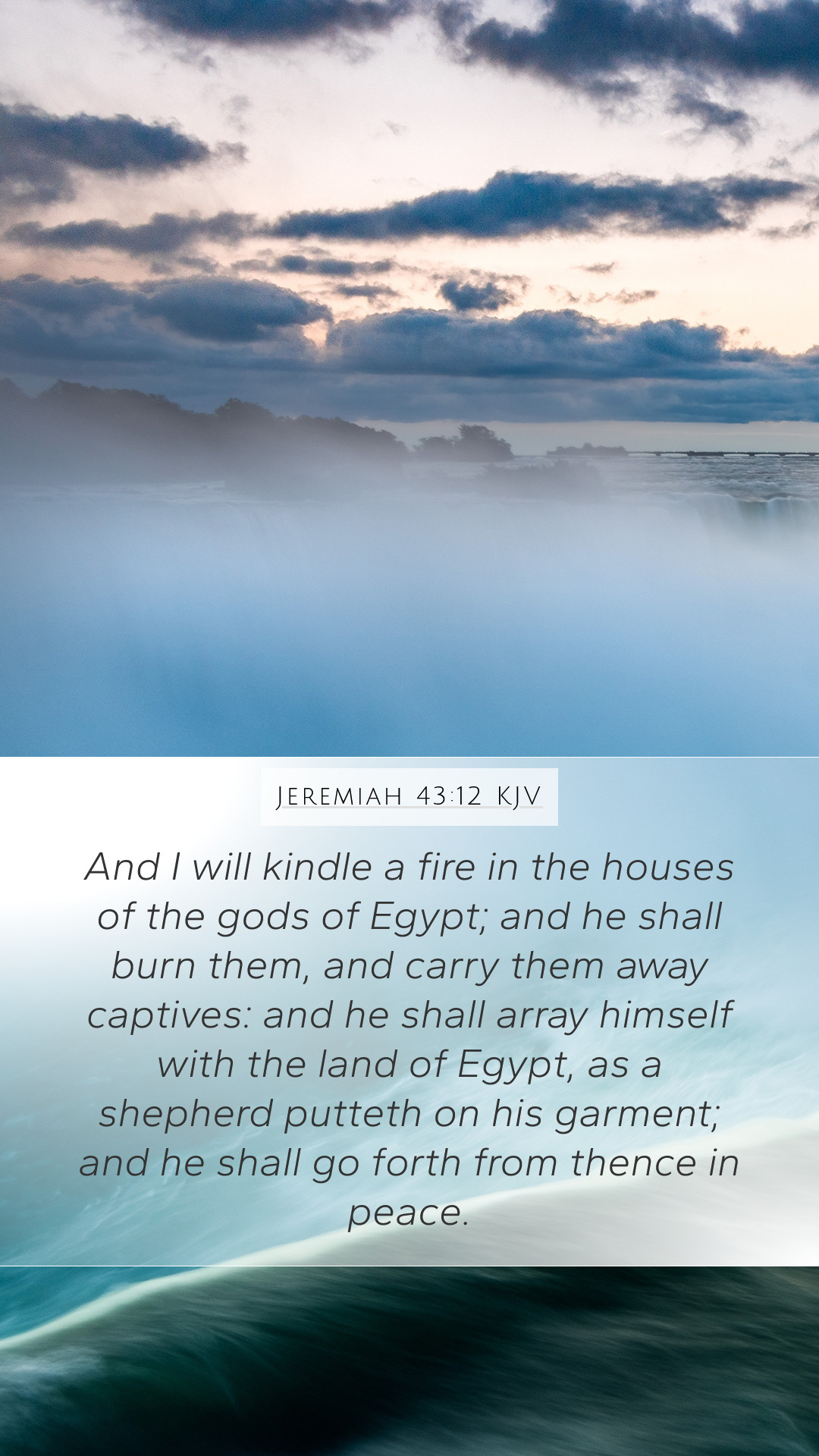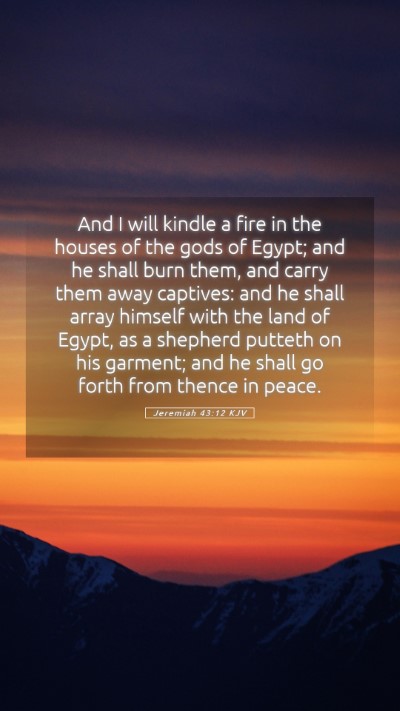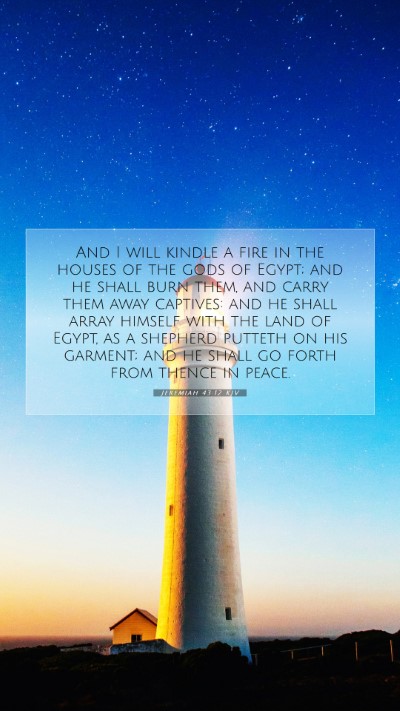Understanding Jeremiah 43:12
In this section, we will delve into the meaning of Bible verses through a detailed analysis of Jeremiah 43:12. This verse is significant within the context of the prophetic literature of the Old Testament. Our exploration will draw insights from esteemed public domain commentaries to provide a comprehensive Bible verse commentary.
Verse Text
“And I will take the remnant of Judah, that have set their faces to go into the land of Egypt to sojourn there, and they shall all be consumed, and fall in the land of Egypt; they shall even be consumed by the sword and by the famine; and they shall die, from the least even unto the greatest, by the sword and by the famine; and they shall be an execration, and an astonishment, and a curse, and a reproach.” (Jeremiah 43:12)
Contextual Background
Jeremiah 43:12 is part of a broader storyline where God, through the prophet Jeremiah, speaks to the people of Judah who are contemplating escaping to Egypt to avoid Babylonian conquest. This reflects a critical decision point for the Israelites as they weigh their trust in God's guidance against their fear of oppression.
Key Themes and Insights
-
Divine Judgment:
Both Matthew Henry and Adam Clarke emphasize that this verse illustrates God's intention to execute judgment upon the remnant of Judah. The promised devastation serves as a warning against their disobedience and lack of faith in God's plan. It signifies the consequences of rejecting God’s will.
-
Famine and Sword:
Albert Barnes points out that the mention of sword and famine signifies the totality of God's judgment. The use of these two elements represents both physical and spiritual destruction, indicating a complete and utter downfall for those who turn their backs on divine instruction.
-
Remnant's Fate:
The fate of the 'remnant'—those who opted to sojourn in Egypt—is a recurrent theme in Jeremiah's prophecies. This remnant symbolizes the choice of humanity; despite witnessing God's wonders, they chose fear over faith—a profound reminder of the importance of obedience to God's word.
-
Prophetic Fulfillment:
This verse serves to affirm the theme of prophetic fulfillment. The judgment foretold by Jeremiah aligns with the historical outcomes experienced by the inhabitants of Judah. As noted in historical commentaries, their decisions led to dire consequences, reinforcing the validity of Jeremiah's prophecies.
-
Symbolism of Egypt:
Egypt often represents sin and bondage in scriptural language. The choice to flee to Egypt rather than to trust in God’s provision signifies a spiritual regression, showing that the remnant preferred human security over divine assistance.
Application and Relevance
The application of Jeremiah 43:12 to contemporary believers involves recognizing the duality of God’s compassion and judgment. It poses essential questions regarding where one places their trust. In times of uncertainty, do individuals turn to God for guidance, or do they seek worldly solutions?
Bible Cross References
- Jeremiah 42:17 - Discusses the consequences for those who do not obey God's voice.
- Jeremiah 44:13-14 - Further elaborates on the fate of those in Egypt.
- Isaiah 31:1 - Warns against trusting in Egypt for help rather than relying on God.
- Hebrews 10:31 - Reminds us of the seriousness of falling into the hands of a living God.
- 2 Kings 25:1-7 - Provides historical context and the results of Babylon's siege.
Conclusion
In wrapping up our examination of Jeremiah 43:12, we see that this verse serves as a critical part of the narrative warning against the failure to trust in God. The insights gained from respected Bible study resources and commentaries not only help to understand this specific verse but also contribute to a greater grasp of the overarching themes in the Book of Jeremiah, urging us to faithfully engage in Bible study lessons and reflections.


